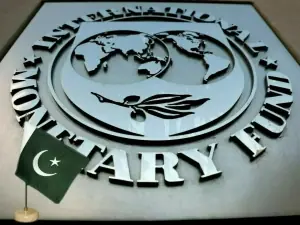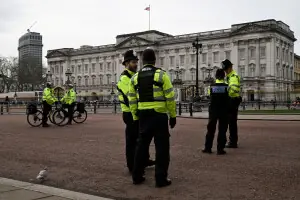‘A transparent census in Pakistan is not possible under the circumstances’
3 min readThe Urban Resource Centre (URC), a nonprofit organization focused on addressing the issues of Karachi, organized a session on Pakistan’s 7th Population and Housing Census and its results on Wednesday.
Arif Hasan, an urban planner and social activist, stated, “A transparent census in Pakistan is not possible under the circumstances of political and ethnic conflicts.” He expressed that there is a significant lack of trust among political groups regarding the estimations of the 2023 Census.
Furthermore, he noted that while there are various ethnic groups coexisting in Pakistan, the problem lies in the fact that they all reside in their own respective areas without any platform for dialogue or the sharing of values and culture.
During the session, Muhammad Toheed, a town planner and GIS trainer, raised questions about the enumeration process. He questioned the decision to commence the enumeration process during the month of Ramzan, as both enumerators and respondents faced difficulties, resulting in a lower response rate.
Toheed emphasized that the aim of the census is not solely to count the population but to understand the socio-economic conditions of the population. However, the census questionnaire comprised only 13 indicators, significantly fewer compared to the 36 parameters in the 1998 census questionnaire.
Toheed compared the questionnaires of the current census and the 1998 census, highlighting the significant reduction in parameters from 36 to 12 in the 2023 census questionnaire.
Touheed said the fundamental issue revolves around which method should be used to count the population: the dejure method or the defacto method. Toheed explained that the defacto method records individuals based on their presence in a specific geographical area during the census enumeration process, whereas the dejure method tallies people according to their regular or legal residence.
The issues in the census of Karachi are related to the method, dejure method, used by the Pakistan Bureau of Statistics (PBS). If the PBS counts all individuals present in Karachi from 1st March to 30th April, there would be no conflict on the population of Karchi. However, the problem arises when people are present in Karachi but their permanent residence is elsewhere, resulting in their exclusion from the census count in Karachi, he added.
These setbacks of the dejure method should be resolved through dialogue, he said.
Dr. Asim Bashir, a development economist and public finance expert, highlighted issues in the population counting of Karachi in the current census. He mentioned that Karachi has a large population that does not possess CNICs (Computerized National Identity Cards). Initially, it was decided that the counting would not be based on CNICs, but due to provincial demand, this principle was added midway through the planning process, making CNICs mandatory for population counting.
Additionally, Dr. Bashir clarified that the population of cantonment boards and DHA (Defence Housing Authority) in Karachi were counted in the 2017 census, but the data was not published due to security concerns.
The purpose of this session was to raise awareness among the community about the 7th Population and Housing Census of Pakistan and its consequences for the country. Members of civil society, political parties, local communities, teachers, and students participated in this session.
For the latest news, follow us on Twitter @Aaj_Urdu. We are also on Facebook, Instagram and YouTube.























Comments are closed on this story.